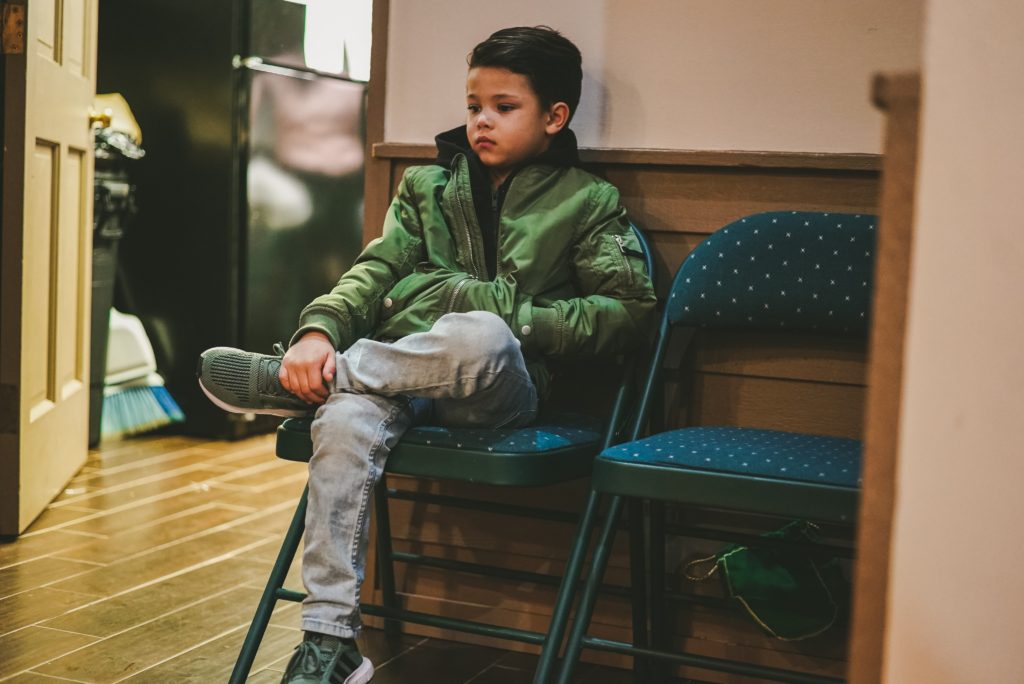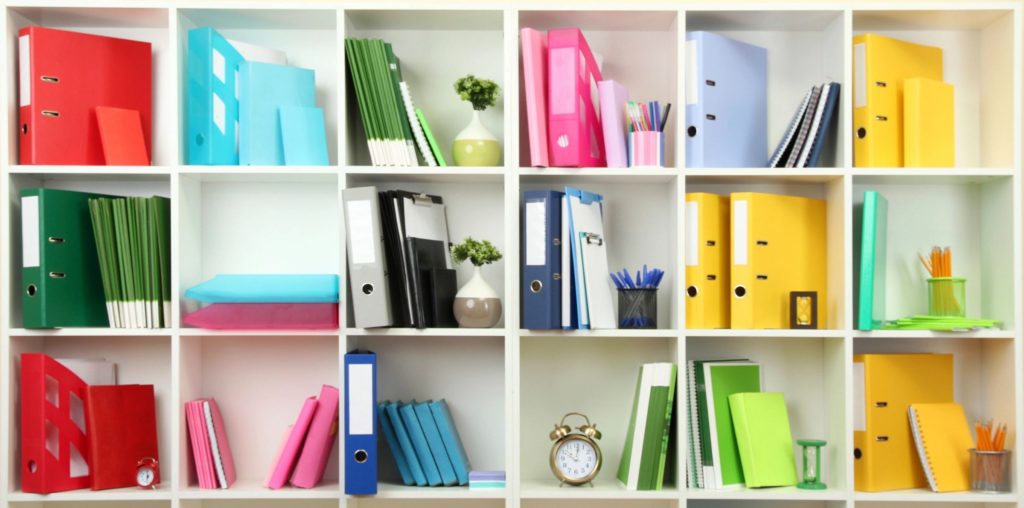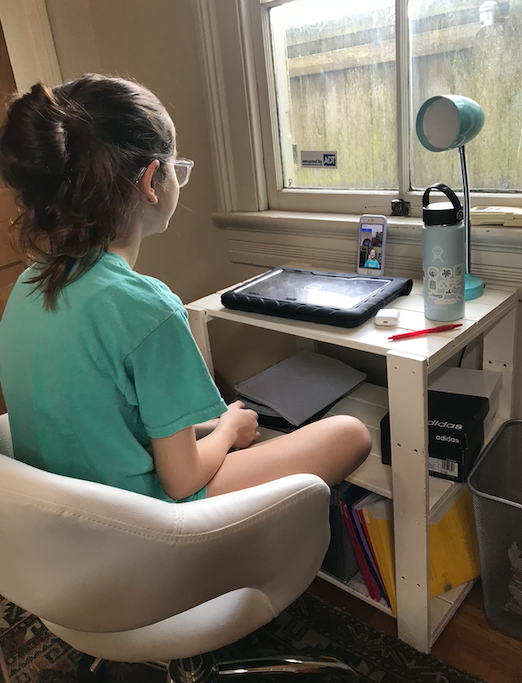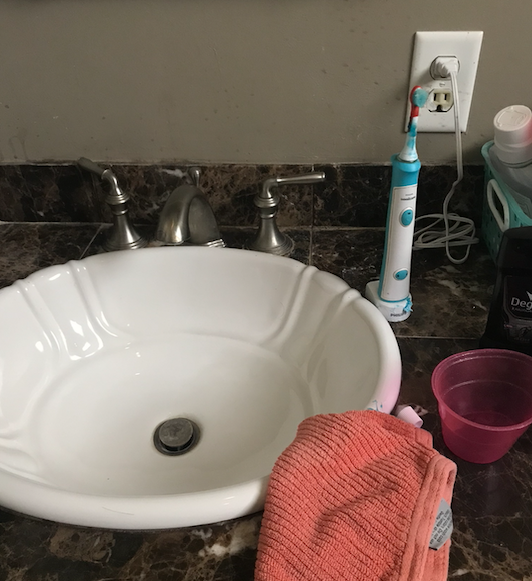I quit.

Toward the end of my first stint as a child psychologist, a high school classmate’s sister called during the ten-minute gap between patients. I took the call because I remembered her, and I was curious. It turned out to be one of those times my own thoughts came out of someone else’s mouth, which is why it’s stuck with me so long.
After asking about my training she remarked, “Don’t take this personally, but I’ve heard you’re better at determining whether or not a kid has autism than in knowing what to do about it.”
I took it personally.
I didn’t quit until I’d had my second child. One day when my son – I’ll call him James – was seven, we burst into the waiting room of the office where I used to be the psychologist, flinging the door open with such force that it rammed the doorknob into the wall. All heads turned to us, as if there’d been a drumroll first. Whereas I used to arrive at 8:00 AM wearing makeup, a hairstyle, an outfit, and accessories, this day I skidded in just after 3:00 PM, bare-faced in yoga pants and a messy ponytail.
The receptionist – I used to call her my receptionist – asked our name. Either she was doing a great job keeping confidentiality, or she didn’t recognize me.
“We’re going to fight for China!” James exclaimed, muffled. I turned to find him head-down in a chair, wobbly feet threatening the pointy chin of a nearby girl. The girl was shaking her head and looking back and forth between James and me.
“He reminds me so much of my brother,” she murmured. Her blonde pageboy haircut was awfully familiar.
Settling into a chair next to James, I remembered evaluating the girl’s older brother several years before. Within a minute, she’d done the same for my son. She looked about ten. A petite twelve, tops.
Once I became a full-time mom, I poo-pooed those who suggested that my professional training might come in handy with my own children. As expressed during that long-ago phone call, there are limits to what a psychologist can do for a kid with autism.
Now that James is a teenager, I realize it’s time to forget that phone call. I’ve listened to an inner psychologist ever since I quit my practice. Here’s what she said:
- Early identification is important. Identifying autism as early as possible is crucial for research, and I trained with the best. As I made the transition from research to practice, this skill rubbed some parents the wrong way. I’d often suspect autism before anyone else was ready to talk about it. When I saw signs in my own child as early as infancy, I doubted myself as much as my family doubted me. But that didn’t stop me from seeking help early. I needed help. Because of his developmental issues, James was harder to care for than most kids his age.
- “Mild” is far different from “not.” Friends questioned the wisdom of diagnosing a condition that can go undetected. James himself has questioned it since he first learned the word “autism” in third grade. But I knew that those with mild disabilities are most responsive to early intervention, and most likely to benefit from a mainstream school placement. They’re also likely to struggle in that mainstream placement. Nowadays, James’s autism is no secret. The amount of mothering he needs is.
- Choose professionals for the right reasons. I already knew a lot of speech / language therapists, occupational therapists, and psychiatrists. I knew how much their services cost, and which weren’t covered by our insurance. I knew a 30-minute session would take three times that long when you factored in travel, tantrums, and waiting room time. I knew what went on in those waiting rooms. All this knowledge helped me weigh convenience and cost equally with professional competence. Every professional we’ve visited has worked within five miles of our home.
- Developmental norms explain a lot. Kids do wacky things. Many of these are age appropriate, and you’re spinning your wheels if you get excited about them. Psychologists know how to tell a problem from a hassle. I wish I’d snapped a photo the morning I found James sitting on top of our refrigerator. It was dangerous, sure. But it was a rare act of adventure and confidence. And he was smiling like he’d won the Superbowl.
- Excuse notes spell relief. Experts’ excuse notes have two jobs: a) communicating the course of a condition, and b) clarifying the limits of one’s ability to alter that course. Just as James’s pediatrician wrote a note to get him out of P.E. for two weeks when he sprained an ankle, I wrote myself this mental note on a rough night: These days James goes berserk at bedtime, even if you do everything right. Hang in there.
- Consider the risk-reward ratio for big decisions. When it came time to consider psychiatric medication, I had a massive head start on most parents. I’d supported other families through these difficult decisions, and I’d stuck around to see how things turned out. When I was desperate to do everything possible to help James, I could put both my hopes and my fears in context.
I still know more about diagnosing autism than about handling it, but I’m proud to admit that now. Psychology rarely helped James directly. It helped me, the parent, tremendously. I put my career on hold in order to devote my full attention to the important and difficult work of motherhood. But I couldn’t have done it without my inner psychologist.










